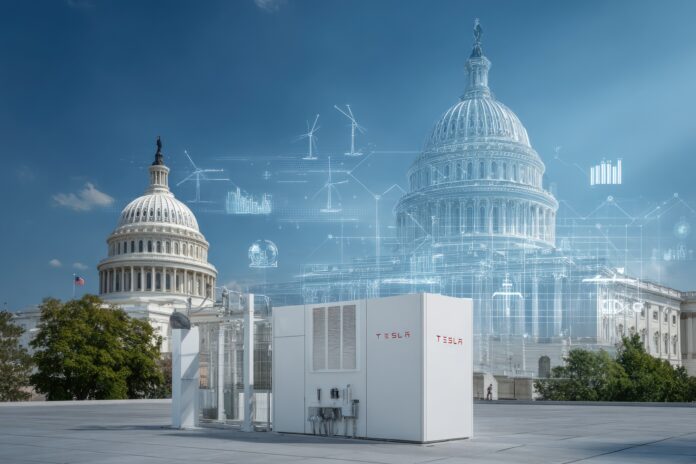Why Tesla’s Energy Division Matters More Than Ever
Tesla pleads for Senate to spare its booming energy business—a headline resonating across the technology, automotive, and energy sectors. With renewable energy adoption at a tipping point, the Senate’s latest policy moves could reshape not just Tesla’s future, but America’s ambitions for energy independence and environmental leadership. Most importantly, Tesla’s urgent appeal underscores how policy decisions today will impact innovation, job creation, and climate action for years to come.
The Rapid Rise of Tesla Energy
While Tesla is primarily known for its electric vehicles, the company’s energy division has quietly become a cornerstone of its long-term vision. Since unveiling the first Powerwall in 2015, Tesla has extended its reach into residential, commercial, and grid-scale energy. Technologies like the Powerwall, Powerpack, and Megapack have positioned Tesla as a leader in battery storage solutions and solar energy systems. In fact, annual revenue for Tesla Energy soared above $10.1 billion in 2024—outpacing even the company’s vaunted automotive growth according to Tesla’s investor reports.
Therefore, Tesla’s clean energy solutions now reach far beyond homes and cars. Megapack projects support major utilities in stabilizing electrical grids, smoothing the integration of wind and solar, and preventing outages. The company’s solar roofing solutions empower consumers to generate and store their own power, while home batteries offer resilience during blackouts and peak pricing periods.
Senate Legislation: The Catalyst for Tesla’s Plea
However, this progress faces a pivotal test. Recent Senate debates include proposals to revise or limit tax incentives for grid-scale battery storage and renewable infrastructure. These incentives—initially designed to accelerate America’s adoption of clean energy—have been instrumental in making large projects, like Tesla’s Megapack deployments, financially viable. Because of these potential changes, Tesla pleads with the Senate to reconsider, arguing that a rollback would stifle innovation, curtail growth, and weaken the nation’s ability to meet climate targets.
Specifically, Tesla emphasizes that strong government support encourages private investment and sustained technological leadership. Without these policies, the cost of adopting advanced energy storage escalates—not just for utilities, but for regular businesses and households seeking clean alternatives. Furthermore, experts warn that altering these measures now could undermine progress during a critical window for transitioning the national grid away from fossil fuels.
What’s at Stake for Consumers and the Clean Grid
The stakes extend far beyond Tesla’s financial success. The company’s energy products directly benefit consumers by improving energy reliability, reducing electricity bills, and enabling wider use of renewables. Grid-scale batteries help balance supply and demand in real time, preventing blackouts in heavily populated regions. At the residential level, products like Powerwall give families peace of mind during storms and outages, while also supporting virtual power plant initiatives that can help entire communities.
Furthermore, policy-driven adoption of clean energy at scale is critical for both environmental and economic reasons. According to a recent IEA report, energy storage capacity must triple by 2030 to meet climate and sustainability goals. Reducing support at this stage risks slowing nationwide progress, just as battery prices reach historic lows and installation rates break new records.
Industry and Advocacy: United in Response
Recognizing the threat, industry leaders and environmental advocates have aligned with Tesla’s cause. Organizations such as the American Clean Power Association and Sierra Club warn that weakening incentives could reverse a decade of steady improvement in clean energy deployment, jeopardizing the jobs, supply chains, and domestic manufacturing Tesla helped ignite.
Moreover, Tesla’s public plea has sparked bipartisan discussion in Congress, with lawmakers on both sides acknowledging the risks of ceding clean technology leadership to international competitors. For example, China is ramping up battery manufacturing and solar deployment, making consistent U.S. policy even more essential to economic competitiveness.
The Broader Implications: Innovation, Jobs, and Security
Besides immediate business impacts, the debate touches on deeper national priorities. Robust support for energy innovation can drive the emergence of new industries and create tens of thousands of high-quality jobs. According to the U.S. Department of Energy, clean technology now accounts for the fastest-growing segment of the American energy workforce. Many of these positions—engineering, manufacturing, installation, and maintenance—exist across Tesla’s energy projects, ensuring economic benefits are widely distributed.
Additionally, maintaining policy momentum around energy storage and renewables strengthens U.S. energy security. By building resilient infrastructure less dependent on volatile global fuel markets, Tesla and its peers improve reliability and support national resilience during extreme weather or geopolitical disruptions.
Tesla’s Message to Policymakers: The Cost of Inaction
In their appeal, Tesla executives urge lawmakers to consider more than immediate fiscal impacts. They stress that cutting incentives now could lead to higher energy costs, slower decarbonization, and lost opportunities for leadership in the global clean tech race. On the other hand, sustained policy support amplifies the effects of private investment, multiplying the benefits across sectors and communities.
Therefore, as Tesla pleads for Senate action, the company represents not just its shareholders, but also the millions who rely on clean, reliable, and affordable energy. The outcome of this debate will help determine whether the U.S. continues to lead or risks falling behind as the world shifts toward sustainability.
Conclusion: The Road Ahead for Tesla and Clean Energy
In sum, Tesla pleads for Senate to spare its booming energy business at a pivotal moment. The decisions made today will shape not only the future of one of America’s most innovative companies, but also the country’s path toward resilience, prosperity, and environmental stewardship. Strong, forward-thinking energy policy will be crucial for fostering breakthroughs—both for Tesla and the nation as a whole.



